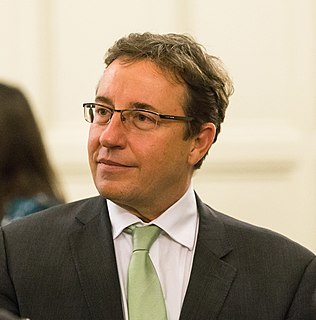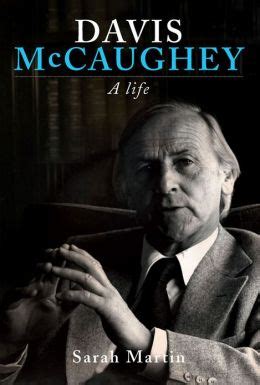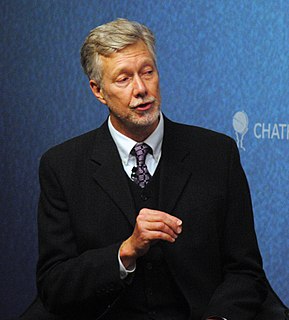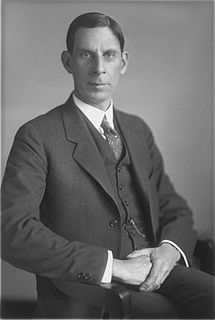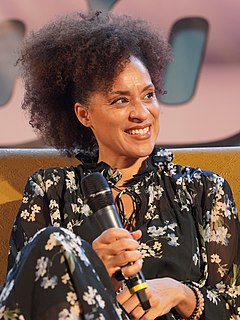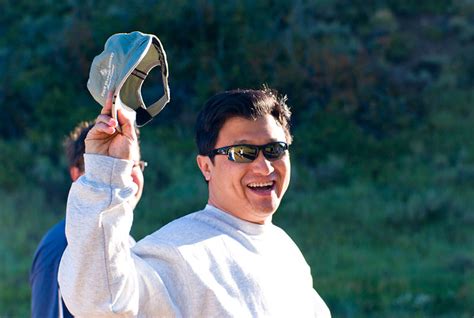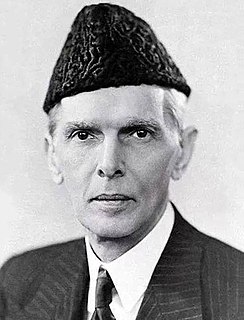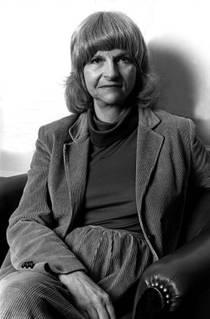Top 1200 Economic History Quotes & Sayings - Page 2
Explore popular Economic History quotes.
Last updated on October 8, 2024.
The economic borderlines of our world will not be drawn between countries, but around Economic Domains. Along the twin paths of globalization and decentralization, the economic pieces of the future are being assembled in a new way. Not what is produced by a country or in a country will be of importance, but the production within global Economic Domains, measured as Gross Domain Products. The global market demands a global sharing of talent. The consequence is Mass Customization of Talent and education as the number one economic priority for all countries
If, in schools, we keep teaching that history is divided into American history and Chinese history and Russian history and Australian history, we're teaching kids that they are divided into tribes. And we're failing to teach them that we also, as human beings, share problems that we need to work together with.
Without calculation, economic activity is impossible. Since under Socialism economic calculation is impossible, under Socialism there can be no economic activity in our sense of the word All economic change, therefore, would involve operations the value of which could neither be predicted beforehand nor ascertained after they had taken place. Everything would be a leap in the dark. Socialism is the renunciation of rational economy.
... what we should be looking for is fresh ideas of how we make moral decisions about our dealings with one another, economic, social, cultural. Economic determinism is an objectionable creed where men and women espouse it in its communist or capitalist form because it treats human beings as economic units and not as responsible persons.
Viewed as a means to the end of political freedom, economic arrangements are important because of their effect on the concentration or dispersion of power. The kind of economic organization that provides economic freedom directly, namely, competitive capitalism, also promotes political freedom because it separates economic power from political power and in this way enables the one to offset the other
There will come a moment when the most urgent threats posed by the credit crisis have eased and the larger task before us will be to chart a direction for the economic steps ahead. This will be a dangerous moment. Behind the debates over future policy is a debate over history-a debate over the causes of our current situation. The battle for the past will determine the battle for the present. So it's crucial to get the history straight.
That is certainly the promise of [Donald Trump] campaign and the promise of his economic program.This economic program is really the pickup truck of economic programs. It's the Ford F-150 of economic programs. It's about manufacturing. It's about oil, fossil fuels. It's a deliberate, forceful reassertion of an image of American industrialism that we have inherited from the 20th century.
I don’t know much about history, and I wouldn’t give a nickel for all the history in the world. It means nothing to me. History is more or less bunk. It's tradition. We don't want tradition. We want to live in the present and the only history that is worth a tinker's damn is the history we make today.
History is a living horse laughing at a wooden horse. History is a wind blowing where it listeth. History is no sure thing to bet on. History is a box of tricks with a lost key. History is a labyrinth of doors with sliding panels, a book of ciphers with the code in a cave of the Saragossa sea. History says, if it pleases, Excuse me, I beg your pardon, it will never happen again if I can help it.
It is common talk that every individual is entitled to economic security. The only animals and birds I know that have economic security are those that have been domesticated--and the economic security they have is controlled by the barbed-wire fence, the butcher's knife and the desire of others. They are milked, skinned, egged or eaten up by their protectors.
Almost all systems of economic thought are premised on the idea of continued economic growth, which would be fine and dandy if we lived on an infinite planet, but there's this small, niggling, inconvenient fact that the planet is, in fact, finite, and that, unlike economic theory, it is governed by physical and biological reality
When I went to high school - that's about as far as I got - reading my U.S. history textbook, well, I got the history of the ruling class. I got the history of the generals and the industrialists and the presidents that didn't get caught. How 'bout you? I got all of the history of the people who owned the wealth of the country, but none of the history of the people that created it.
I've always been interested in history, but they never taught Negro history in the public schools...I don't see how a history of the United States can be written honestly without including the Negro. I didn't [paint] just as a historical thing, but because I believe these things tie up with the Negro today. We don't have a physical slavery, but an economic slavery. If these people, who were so much worse off than the people today, could conquer their slavery, we can certainly do the same thing....I am not a politician. I'm an artist, just trying to do my part to bring this thing about.
When we liberate the economic potential of women, we elevate the economic performance of communities, nations, and the world... There is a stimulative and ripple effect that kicks in when women have greater access to jobs and the economic lives of our countries: Greater political stability. Fewer military conflicts. More food. More educational opportunity for children... By harnessing the economic potential of all women, we boost opportunity for all people.
Don't ever let anyone tell you that history doesn't repeat. For 70 years, liberals have been spinning the yarn that FDR's New Deal, despite all the evidence that it exacerbated and prolonged the Great Depression, quickened our economic recovery. Indeed, I remember scratching my head when one of my college history professors in the 1970s tried to convince us of that theory and its corollary - an even better howler - that FDR was actually a conservative, because if he hadn't implemented his socialist programs, the republic would have died right there.
[The right] may never bring prayer back to schools, but it has rescued all manner of rightwing economic nostrums from history's dustbins. Having rolled back the landmark economic reforms of the sixties (the war on poverty) and those of the thirties (labor law, agricultural price supports, banking regulation), its leaders now turn their guns on the accomplishments of the earliest years of progressivism (Woodrow Wilson's estate tax; Theodore Roosevelt's anti-trust measures). With a little more effort, the backlash may well repeal the entire twentieth century.
The Western world, in spite of its advantages of mechanization and industrial efficiency is today in a worse mess than ever before in history. The adoption Western economic theory and practice will not help us in achieving our goal of creating a happy and contented people. We must work our destiny in our own way and present to the world an economic system based on true Islamic concept of equality of manhood and social justice.














